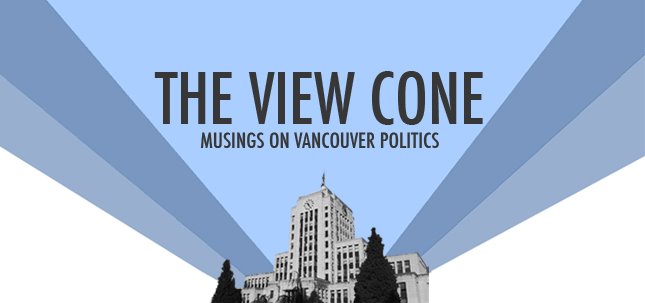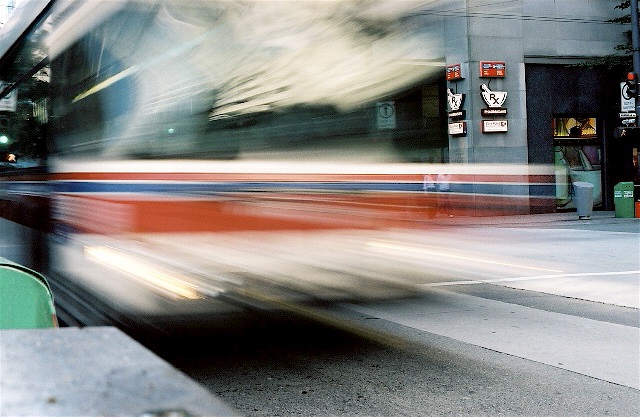
Rudolf Giuliani has a gift, the gift of making complex issues simple. This past week he took a break from stumping around America for his buddy John McCain to make an appearance in Vancouver. Speaking before a crowd at an economic-development conference just outside of the city, in Surrey, B.C., he offered his advice on how to boost the economy via crime reduction. When he was inevitably asked about Insite, Vancouver's safe injection site, which medical researchers tout as successful in reducing deaths and disease transmission, Giuliani offered this assessment on the program: "It's a terrible mistake".
Apparently, for New York's former mayor, harm reduction is not an effective way to address issues of addiction and property crime, where as arresting small-time drug dealers is.
It's interesting seeing Guiliani bring his 'zero tolerance is the only answer' message to Canada's left coast, given that outgoing Vancouver mayor Sam Sullivan modeled his own so-called Civil City initiative on the "broken windows theory" that underpinned Guiliani focus on the small stuff crime crackdown in the 1990s. Curiously, despite the entrenched addiction crisis and colossal property crime rates in the city, Vancouverites have not especially warmed to the Civil City project. This is likely due in part to Mayor Sullivan's deficit of leadership - he was recently replaced by his own party in a leadership vote - but also perhaps because the public here does not see fit to hand over its civic realm to brigades of police officers as was foisted on the streets of New York.
It's clear in looking back at New York's crime clampdown, in the 1990s that the results were dramatic, evidenced by real reductions in crime rates during his tenure as mayor. In recent years however, doubts have been raised by some as to the whether Giuliani is right in taking the lion's share of the credit, as he often likes to do. A look at the statistics for violent and property crime in NYC shows that the rates had been declining for as many as four years before Giuliani took office.

Others have noted that incidences of police brutality and racial profiling and targeting rose dramatically over the same period. New York's transformation has been celebrated by many and having visited there both before and during the Giuliani years I can attest for the city's makeover in terms graffiti, loitering and the number of homeless on the streets of central Manhattan. What's less clear is what was sacrificed in the doing of this massive scrub up.
The situation in Vancouver, while similar to New York in some respects, differs greatly both in the extent to which the Downtown eastsides problems are tightly wound around the reality of an illicit drug affliction, in particular heroin, and the degree to which New York was in the grip of violent crime in the 1980s in particular. It's not clear that addiction was the root of crime in New York nor is Vancouver's incidence of violent crime anywhere close to the per capita levels seen in NYC.
In drawing on Rudolf Giuliani's experience Canadians might be wise to not leap to cure-all parallels between the situation in Vancouver's downtown eastside and American cities like New York. While the desperate need for solutions to the addiction related crime and homelessness in Vancouver is rubbing it's citizens raw, a police centric solution may be neither possible or effective. Large scale 'sanitation by force' while having obvious benefits is also a recipe for transforming a city into an oversized resort with boutique experiences in which only certain types of activities and certain kinds of people are free to move, occupy space and associate.
Speaking of the anti-crime policies put forth to clean up New York City, Harvard law professor Bernard Harcourt describes the impact of such sanitation :
"It is, in effect, a type of 'aesthetic policing' that fosters a sterile, Disneyland, consumerist, commercial aesthetic. It reflects a desire to transform New York City into Singapore, or worse, a shopping mall. The truth is, however, that when we lose the dirt, grit, and street life of major American cities, we may also threaten their vitality, creativity, and character." Boston Review
It remains to be seen whether the lure of order at the expense of freedom and vitality will appeal to Vancouverites or whether this brand of police-state light will be rejected as holding more risks than obvious benefits. To be sure Rudolf Giuliani's definition of freedom is worth a second look:
R. Giuliani, Speech on Crime, March 20, 1994
This post was also published at: eatyourkidsblog.blogspot.com
Photo credit: Mike http://www.flickr.com/photos/squeakymarmot/






No comments:
Post a Comment